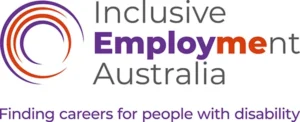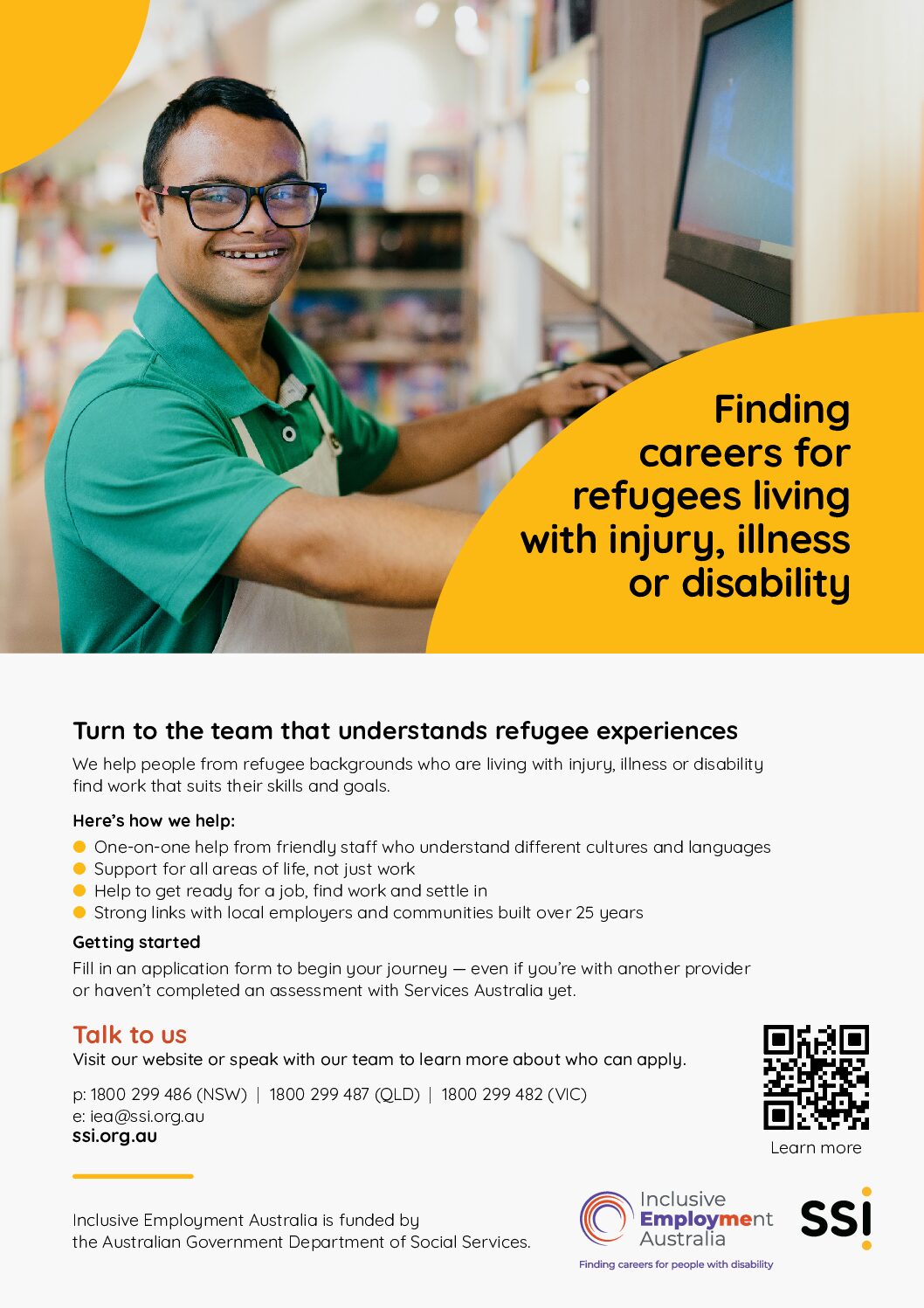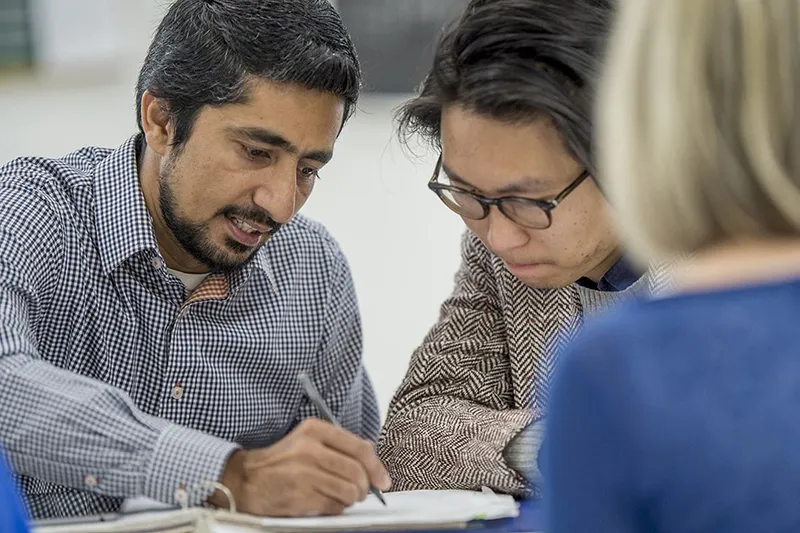Culturally-responsive employment support for refugees with disability
We provide culturally-responsive employment support for people from refugee backgrounds in NSW, QLD and Victoria living with injury, illness or disability.
With over 25 years of experience offering refugee employment support services and job support for migrants, we help people recognise their skills and build confidence in what they can do.
Who we help
Inclusive Employment Australia has replaced Disability Employment Services.
SSI offers the Inclusive Employment Australia program in NSW, QLD and Victoria. Click here to find our office locations.
To be eligible to receive services with SSI, participants must:
- be an Australian resident or eligible visa holder (protected special category visa, temporary protection visas, or safe haven visas)
- have a disability, injury or health condition
- be between 14 and 67 years of age
- not be studying full-time
- not be working at or above your assessed work capacity.
Participants do not need to receive an Income Support Payment to access support.

Inclusive Employment Australia is funded by the Australian Government Department of Social Services.
Download information flyer/poster

Where can you find us?
NSW
Ashfield
First Tuesday of every month
9am – 4pm
Level 2, 158 Liverpool Rd, Ashfield NSW 2131
1800 299 486
iea.nsw@ssi.org.au
Auburn
Monday – Friday
9am – 5pm
Suite 405, Level 4/39 Queen St, Auburn NSW 2144
1800 299 486
iea.nsw@ssi.org.au
Bankstown
Monday – Friday
9am – 5pm
Level 2, 462 Chapel Rd, Bankstown NSW 2200
1800 299 486
iea.nsw@ssi.org.au
Bonnyrigg
Wednesday
9am – 4pm
2 Wall Pl, Bonnyrigg NSW 2177
1800 299 486
iea.nsw@ssi.org.au
Burwood
Monday and Wednesday
10am – 4pm
2 Conder St, Burwood NSW 2134
1800 299 486
iea.nsw@ssi.org.au
Cabramatta
Monday – Friday
9am – 5pm
Suite 3, Level 1 Dutton Plaza Office, 8 Dutton Ln, Cabramatta NSW 2166
1800 299 486
iea.nsw@ssi.org.au
Campbelltown
Tuesday, Wednesday and Thursday
10am – 4pm
Suite 2 Level 6, 138 Queen St, Campbelltown NSW 2560
1800 299 486
iea.nsw@ssi.org.au
Campsie
Monday and Friday
10am – 4pm
Level 2, 59-63 Evaline St, Campsie NSW 2194
1800 299 486
iea.nsw@ssi.org.au
Fairfield
Monday – Friday
9am – 5pm
7 William St, Fairfield NSW 2165
1800 299 486
iea.nsw@ssi.org.au
Lakemba
Tuesday, Wednesday and Thursday
10am – 4pm
194-198 Lakemba Rd, Lakemba NSW 2195
1800 299 486
iea.nsw@ssi.org.au
Liverpool
Monday – Friday
9am – 5pm
Level 1, 45-47 Scott St, Liverpool NSW 2170
1800 299 486
iea.nsw@ssi.org.au
Marrickville
Tuesday and Thursday
10am – 4pm
176 Marrickville Rd, Marrickville NSW 2204
1800 299 486
iea.nsw@ssi.org.au
Merrylands
Tuesday, Wednesday and Thursday
9am – 4pm
12/254 Pitt St, Merrylands NSW 2160
1800 299 486
iea.nsw@ssi.org.au
Miller
Monday – Friday
9am – 5pm
C02-90 Cartwright Av, Miller NSW 2168
1800 299 486
iea.nsw@ssi.org.au
Parramatta
Tuesday
10am – 4pm
Level 19, 60 Station St East, Parramatta NSW 2150
1800 299 486
iea.nsw@ssi.org.au
Wetherill Park
Tuesday and Thursday
10am – 4pm
Suite 105/447 Victoria St, Wetherill Park NSW 2164
1800 299 486
iea.nsw@ssi.org.au
QLD
Beenleigh
Monday – Friday
9am – 5pm
Level 1, 110-112 George St, Beenleigh QLD 4207
1800 299 487
iea.qld@ssi.org.au
Chermside
Monday, Tuesday and Wednesday
10am – 4pm
Westfield Shopping Centre, Level 2, Corner Gympie & Hamilton Rd, Chermside QLD 4032
1800 299 487
iea.qld@ssi.org.au
Goodna
Monday – Friday
9am – 5pm
9 William St, Goodna QLD 4300
1800 299 487
iea.qld@ssi.org.au
Ipswich
Tuesday and Thursday
9am – 4pm
Level 3, 16 East St, Ipswich QLD 4305
1800 299 487
iea.qld@ssi.org.au
Kingston
Wednesday
9am – 4pm
558 Kingston Rd, Kingston QLD 4114
1800 299 487
iea.qld@ssi.org.au
Logan Central
Monday – Friday
9am – 5pm
91 Wembley Rd, Logan Central QLD 4114
1800 299 487
iea.qld@ssi.org.au
Moorooka
Tuesday
9am – 4pm
1/8 Mayfield Rd, Moorooka QLD 4105
1800 299 487
iea.qld@ssi.org.au
Sunnybank
Monday – Friday
9am – 5pm
Shop 4, 397 Hellawell Rd, Sunnybank QLD 4109
1800 299 487
iea.qld@ssi.org.au
Toowoomba
Tuesday, Wednesday and Thursday
10am – 3pm
123 Margaret St, Toowoomba QLD 4350
1800 299 487
iea.qld@ssi.org.au
Upper Mount Gravatt
Tuesday, Wednesday and Thursday
9am – 4pm
Shop 3B, 2092 Logan Rd, Upper Mount Gravatt QLD 4122
1800 299 487
iea.qld@ssi.org.au
VIC
Broadmeadows
Tuesday, Wednesday and Thursday
9am – 4pm
Level 2, Building A, 61 Riggall St, Broadmeadows VIC 3047
1800 299 482
iea.vic@ssi.org.au
Cheltenham
Monday – Friday
9am – 5pm
Level 2, 11 Chesterville Rd, Cheltenham VIC 3192
1800 299 482
iea.vic@ssi.org.au
Cranbourne
Monday , Wednesday and Friday
9am – 4pm
156 Sladen St, Cranbourne VIC 3977
1800 299 482
iea.vic@ssi.org.au
Croydon
Tuesday
9:30am – 4pm
5 Civic Square, Croydon VIC 3136
1800 299 482
iea.vic@ssi.org.au
Epping
Monday, Wednesday and Friday
10am – 4pm
Unit 16, 26-38 Miller St, Epping VIC 3076
1800 299 482
iea.vic@ssi.org.au
Mill Park
Thursday
9:30am – 4pm
11 Mill Park Dr, Mill Park VIC 3082
1800 299 482
iea.vic@ssi.org.au
Noble Park
Monday – Friday
9am – 5pm
G07/127 Chandler Rd, Noble Park VIC 3174
1800 299 482
iea.vic@ssi.org.au
Richmond
Monday, Wednesday and Friday
10am – 4pm
Suite 106, 91-95 Murphy St, Richmond VIC 3121
1800 299 482
iea.vic@ssi.org.au
Ringwood
Monday, Wednesday and Friday
10am – 4pm
Unit 5, 45-51 Ringwood St, Ringwood VIC 3134
1800 299 482
iea.vic@ssi.org.au
Sunshine
Monday – Friday
9am – 5pm
2 Devonshire Rd, Sunshine VIC 3020
1800 299 482
iea.vic@ssi.org.au
Werribee
Monday – Friday
9am – 5pm
Suite 10, Level 1, 75 Watton St, Werribee VIC 3030
1800 299 482
iea.vic@ssi.org.au
What participants will receive
Support is available to people whether they are thinking about starting work or already have a job and need some help. Support is also available for those who would like to volunteer. They can choose the type of support that suits them from the options below.

Help with job-readiness
- Explore employment goals
- Identify and get help with all types of barriers, not just work-related
- Access training and activities to build your skills
- Attend job preparation workshops and forums
- Access to educational institutions, community organisations and other support (including refugee-specific community linkages)

Help finding a job
- Support finding jobs that align with career ambitions, goals, previous experience, skills and work capacity
- Prepare for interviews and boost confidence
- Access to our network of employers
- Help getting overseas qualifications recognised
- Get the job!

Help in the workplace
- Access to support and training at different stages of employment, including workplace integration, onboarding and on-the-job training
- Address emerging challenges
- Support accessing transport, tools, licensing, and other needs
- Making sure the workplace is comfortable, culturally sensitive and supportive
Why choose SSI?
Finding and keeping a job can be especially hard for newly arrived refugees with disability. Language barriers, health and trauma, digital literacy, transport, and limited support networks often make it difficult to access mainstream services like the NDIS.
At SSI, we understand these challenges — and we know how to help overcome them. Since 2018, we’ve delivered Disability Employment Services (DES) with approaches tailored for refugees, including:
- Bilingual and culturally competent staff who understand refugee journeys
- Strong connections with refugee communities, leaders and services
- Personalised support that respects individual needs and lived experience
- Holistic help that goes beyond just job placement, for example, language, housing, financial aid and physical and mental health supports

Staff

Strong connections

Personalised support

Holistic help
Our track record shows the difference: We assisted over 11,600 participants between 2017 and 2024 into employment, education pathways, obtaining overseas skills and qualification recognition, and referrals into wrap-around and support services.
By focusing on refugee participants, SSI offers a culturally safe employment program, that is trusted and proven — giving people the best chance to succeed in the workforce and build a bright future.
What makes us different
How to get started
To begin the journey with us, please fill in the application form.
You can do this even if the person hasn’t completed an employment assessment with Services Australia yet or if they are with another provider.
Answers to questions you might have
What is the Inclusive Employment Australia (IEA) program?
Inclusive Employment Australia (IEA) is a federal program that helps people with disability, injury or health conditions prepare for work, find suitable employment, and maintain it over time. It offers inclusive employment for people with injury or illness.
Who is eligible for the Inclusive Employment Australia program?
To access IEA services, individuals generally need to meet the general eligibility criteria, unless they qualify under a special eligibility pathway.
General eligibility criteria include:
- Having a current and valid ESAt (Employment Services Assessment) showing a disability, injury or health condition that impacts work capacity.
- Having baseline work capacity (with intervention) under 30 hours per week.
- Being an Australian resident or holding an eligible visa (e.g. Australian citizen, permanent resident, Special Category Visa, Safe Haven Enterprise Visa).
- Being of working age (at least 14 years old and below Age Pension qualifying age).
- Not studying full time (unless special criteria apply).
- Not already working in open employment at or above the assessed employment benchmark.
Special eligibility pathways allow certain groups to access IEA even if they do not fully meet the general criteria. These include Eligible School Leavers, DSP recipients with a prior ESAt, pre-release prisoners, and some NDIS participants under specific conditions.
What is the ESAt / JCA and why is it important?
The ESAt (Employment Services Assessment) or JCA (Job Capacity Assessment) is conducted through Services Australia to assess a person’s work capacity, identify barriers, and determine the most suitable employment service, including Inclusive Employment Australia.
Eligibility for Inclusive Employment Australia generally depends on having a current and valid ESAt.
Can I register directly with an Inclusive Employment Australia provider (not through Services Australia)?
Yes. Some providers allow direct registration, meaning individuals can approach them directly rather than being referred through Services Australia. However, general or special eligibility criteria must still be met.
What kinds of supports and services does Inclusive Employment Australia provide?
Inclusive Employment Australia offers a range of tailored supports, including:
- Preparing for work (skill development, résumé building, interview support)
- Finding work that aligns with individual abilities and goals
- On-the-job support, mentoring and coaching
- Workplace adjustments (assistive technology, flexible hours, modifications)
- Career development and ongoing support as needed
What is the Employment Assistance Fund (EAF)?
The Employment Assistance Fund (EAF) helps pay for workplace adjustments, assistive equipment, modifications, and Auslan interpreting to ensure individuals can work effectively. The fund can be accessed by either the employee or employer.
Can I join Inclusive Employment Australia if I’m not on Centrelink?
Yes. Under the Inclusive Employment Australia design, individuals who are not receiving income support may volunteer into the program, provided they meet the eligibility criteria.
What is SSI’s role in Inclusive Employment Australia?
SSI is a provider for the Inclusive Employment Australia program in selected regions of NSW, QLD and Victoria. We bring specialist experience, particularly in working with people from refugee and migrant backgrounds, to deliver tailored, culturally responsive and community-connected employment services, and trauma-informed job support.
What documentation or proof do I need to show to be eligible for Inclusive Employment Australia?
When registering or commencing with an Inclusive Employment Australia provider, you must provide evidence such as identity documents (e.g. driver’s licence or passport), medical or functional reports, ESAt results, or proof of special eligibility (where applicable).
How long can I receive support under Inclusive Employment Australia?
Support is not limited by a fixed time period. Participants can continue receiving services as long as necessary to achieve their employment goals, subject to ongoing eligibility and program rules.
What happens if my circumstances change while I am with the Inclusive Employment Australia program (e.g. work capacity improves or employment begins)?
If circumstances change, the provider will review your needs and adjust the level or phase of support accordingly. Once commenced, participants generally do not need to requalify eligibility on an ongoing basis.
Who can be contacted for more detailed eligibility advice or to check qualification for the Inclusive Employment Australia program?
For detailed eligibility advice, you can contact Services Australia, your local IEA provider (such as SSI in your area), or review the official IEA guidelines on the Department of Social Services website.
Get help like
Jana
who struggled to find work that fit her needs until she received personalised support and encouragement from SSI. She has now secured her ideal job in the care industry.

Omar
who wanted to work in retail and study but faced challenges due to living with schizophrenia and an intellectual disability. We helped him with training and securing a job at a supermarket, where he has thrived and achieved his goal of becoming a store manager.

Sara
who struggled to find fulfilling work due to her bipolar affective disorder and unfamiliarity with the Australian workforce. SSI recognised her skills and helped her find a job where she uses her lived experience to assist others find work.

Start the journey now
Fields with an * are required.
Get in touch
SSI offers the Inclusive Employment Australia program in NSW, Queensland and Victoria.
P: 1800 299 486 (NSW)
P: 1800 299 487 (QLD)
P: 1800 299 482 (VIC)




